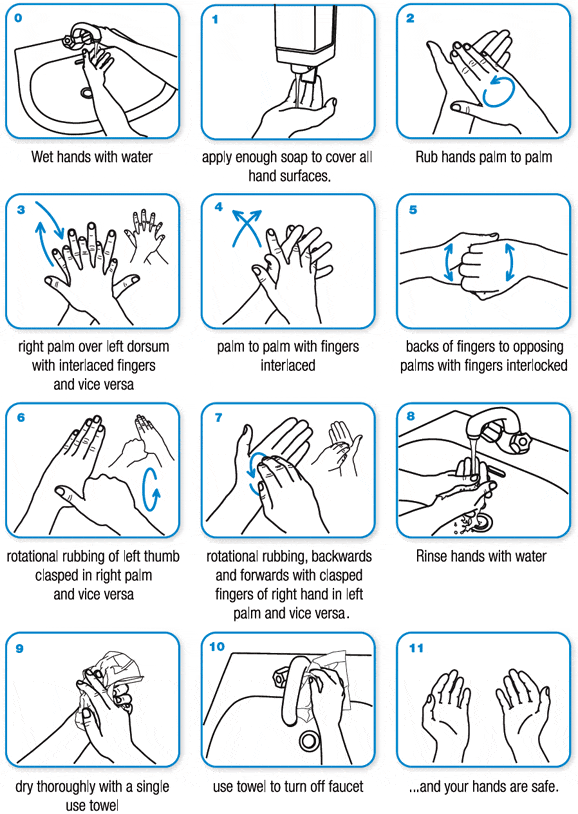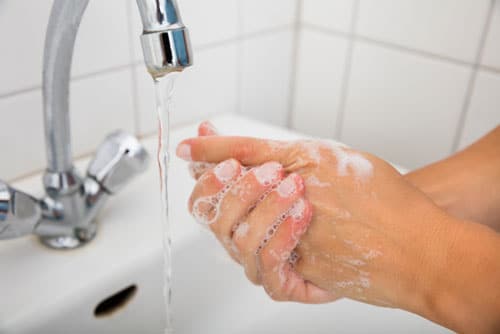Handwashing seems pretty simple…
You get your hands wet.
Soap up.
And rinse off.
What could be easier?
But it turns out that few of us do it right. We leave so many germs on our hands that we might as well not have bothered.
Most of us know that proper handwashing helps us avoid flus, colds, and other infection. But it is even more crucial in preventing another common type of disease…food poisoning.
Some 48 million Americans (one in seven) are sickened with foodborne illnesses each year. They include salmonella, norovirus (stomach flu), and E. coli.
If you’ve gotten any of these, you know it’s no picnic. The stomach cramps, fever, diarrhea, and vomiting can be awful. But for some people, it’s even worse.
More than 120,000 Americans are hospitalized with food poisoning every year. More than 3,000 of them die, according to the CDC.
Proper handwashing would prevent most of these cases, say researchers.
That’s because people who prepare food often contaminate surfaces that others touch. For example, someone who prepares burgers might not wash their hands properly before touching the refrigerator handle. The next person who opens fridge, may then get a dose of E.coli.1
The U.S. Department of Agriculture’s Food Safety Division wanted to find out how many of us wash our hands the right way. Researchers had 383 volunteers use test kitchen facilities.
The researchers observed the volunteers handwashing behavior. Then they tested bacterial cross contamination to surfaces and foods
They found that:
- 97% of people did not wash their hands properly.
- Half did not wash their hands for the recommended 20 seconds.
- Many dried their hands with a germ-ridden towel.2
As a result, the test kitchen became infested with germs. Nearly half the spice containers were contaminated. And 11% of the refrigerator handles had enough germs to make a person sick.
Carmen Rottenberg is acting deputy undersecretary for food safety at the USDA. “You can’t see, smell, or feel bacteria,” she said. “By simply washing your hands properly, you can protect your family and prevent that bacteria from contaminating your food and key areas in your kitchen.”
The Best Way to Wash Your Hands
A study published in the journal Infection Control & Hospital Epidemiology found what researchers believe is the best way to wash hands. The World Health Organization (WHO) now recommends this method:3

One last thing…
Don’t use soaps labeled antibacterial. They often contain triclosan. It’s a chemical endocrine disruptor that is linked to cancer. And it doesn’t clean your hands any more effectively than plain soap.4
Editor’s Note: Are you sick of getting sick? There are 31 secrets that build your immune system… And we’ve put them all together for you in our report, Bulletproof Your Immunity: Easy Ways to Protect Your Health. Get all the details HERE.
Like this Article? Forward this article here or Share on Facebook.
References:
1 https://www.cnn.com/2018/06/30/health/hand-washing-study-usda/index.html
2 https://www.usda.gov/media/press-releases/2018/06/28/study-shows-most-people-are-spreading-dangerous-bacteria-around
3 http://www.who.int/gpsc/clean_hands_protection/en/
4 https://www.mayoclinic.org/healthy-lifestyle/adult-health/expert-answers/triclosan/faq-20057861

